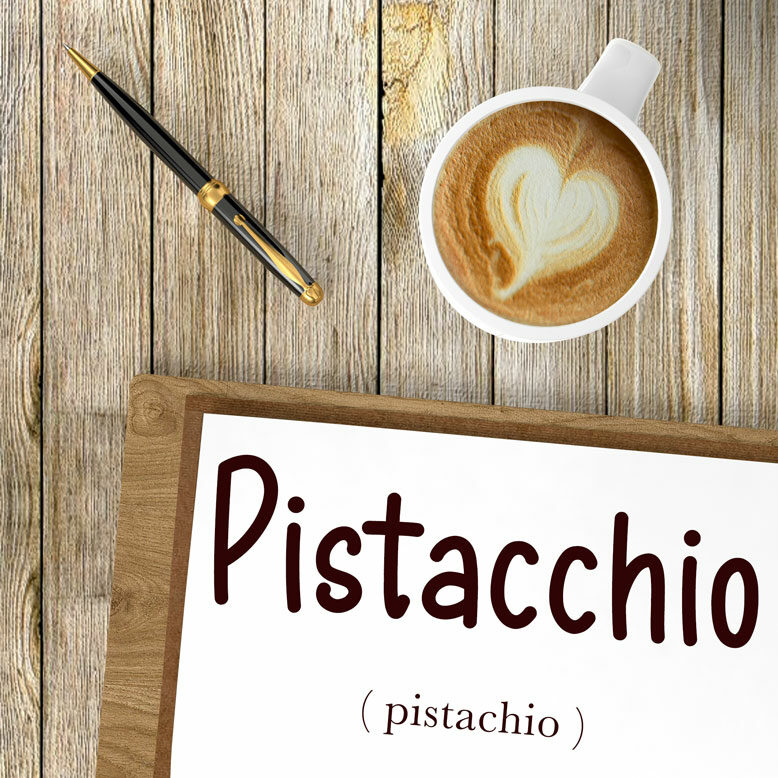The pistacchio, written as pistachio in English, is a member of the cashew family. A common food since 6750 BC, they are native to Central Asia and the Middle East. In fact, Iran was responsible for over half the world’s production of pistachios as of 2017.
Origin of the word:
The word pistacchio comes from the Green pistakion (πιστάκιον) via the Middle Persian pistak.

Learn with our video
How to pronounce ‘pistacchio’ in Italian
As with many Italian food names, the pronunciation of pistacchio was Americanised over time, most likely because the Italian immigrants were fed up with constantly trying to correct the pronunciation.
The biggest difference between the two pronunciations is that English speakers pronounce the ch as an ‘sh’ sound whereas in Italian, ch is a hard ‘k’ sound.
English speakers also fail to pronounce the double cc, which is produced by holding the consonant for a brief second before releasing. It sounds something like a very short pause in the middle of the word.
In both America and the UK, pistachio is pronounced as four separate syllables: pis-ta-shi-oh. In Italian, it is just three syllables: pis-tak-kio.
<< PISTACCHIO >>
/pis’takːjo/

Adoro il gelato al pistacchio!
I love pistachio ice cream!
Pistacchio is a masculine noun. To form the plural, just drop the final o, and you get pistacchi.
Che buoni che sono questi pistacchi!
These pistachios are so good!

Pistacchio also refers to the tree on which pistachios grow.
You can use the word figuratively to indicate the soft green colour reminiscent of the seed.
Cosa ne pensi di questo cappello verde pistacchio?
What do you think of this pistachio-coloured hat?
This article is also available in video format on our YouTube channel. The audio version can be found on Podbean, Google Podcast, Apple Podcast and Spotify.
Heather Broster is a graduate with honours in linguistics from the University of Western Ontario. She is an aspiring polyglot, proficient in English and Italian, as well as Japanese, Welsh, and French to varying degrees of fluency. Originally from Toronto, Heather has resided in various countries, notably Italy for a period of six years. Her primary focus lies in the fields of language acquisition, education, and bilingual instruction.


